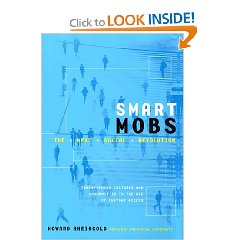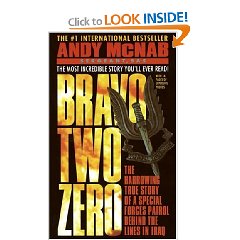Review: The Fifty Year Wound–The True Price of America’s Cold War Victory
6 Star Top 10%, Atrocities & Genocide, Complexity & Catastrophe, Congress (Failure, Reform), Crime (Government), Diplomacy, Environment (Problems), Executive (Partisan Failure, Reform), Force Structure (Military), History, Intelligence (Government/Secret), Military & Pentagon Power, Misinformation & Propaganda, Peace, Poverty, & Middle Class, Politics, Power (Pathologies & Utilization), Secrecy & Politics of Secrecy, Security (Including Immigration), True Cost & Toxicity, Truth & Reconciliation, Values, Ethics, Sustainable Evolution, Voices Lost (Indigenous, Gender, Poor, Marginalized), War & Face of Battle, Water, Energy, Oil, Scarcity“For the United States, the price of victory goes far beyond the dollars spend on warheads, foreign aid, soldiers, propaganda, and intelligence. It includes, for instance, time wasted, talent misdirected, secrecy imposed, and confidence impaired. Particular costs were imposed on industry, science, and the universities. Trade was distorted and growth impeded.” (page xi)
“CIA world-order men whose intrigues more often than not started at the incompetent and went down from there, White House claims of ‘national security' to conceal deceit, and the creation of huge special interests in archaic spending all too easily occurred because most Americans were not preoccupied with the struggle.” (page 643)
Although the author did not consult the most recent intelligence reform books (e.g. Berkowitz, Johnson, Treverton, inter alia), he is consistently detailed and scathing in his review of intelligence blunders and the costs of secrecy–in this he appears to very ably collaborate the findings of Daniel Ellsberg's more narrowly focused book on “SECRETS: A Memoire of Vietnam and the Pentagon Papers.” He points out, among many many examples, that despite Andropov's having been head of the KGB for fifteen years, at the end of it CIA still did not know if Andropov has a wife or spoke English. He also has a lovely contrast between how little was learned using very expensive national technical means (secret satellites) and open sources: “So much failure could have been avoided if CIA has done more careful homework during the 1950s in the run-up to Sputnik; during the 1960s, when Sovieet marshals were openly publishing their thoughts on nuclear strategy; or during the 1970s and 1980s, when stagnation could be chronicled in the unclassified gray pages of Soviet print. Most expensively, the CIA hardly ever learned anything from its mistakes, largely because it would not admit them.” (pages 567-568).
The author's biographic information does not include any reference to military service, but footnote 110 suggests that he was at least in Officer Candidate School with the U.S. Marine Corps during the Vietnam era. The biography, limited to the inside back jacket flap, also avoids discussing the author's considerable experience with information technology. Given the importance of this critique of all that most Republicans and most 50-70 year olds hold very sacred, we need to more about the man goring the ox. Future editions should have a much expanded biography.
Bottom line: America muddled through the Cold War, made many costly mistakes, and developed a policy-making process that is, to this day, largely uninformed due to a lack of a comprehensive global intelligence capability, or a sufficient means of consulting diverse experts (as opposed to the in-town intellectual harlots). If ever we needed a clean-sheet look at how we make policy and how we provide decision-support to that policy process, this is the time. The “fifty-year wound” is still open, and the author warns us it will not heal without a reappraisal of how we do the business of national security.

Review: Longitudes and Attitudes–Exploring the World After September 11
5 Star, Atlases & State of the WorldAcross many columns, the author hits again and again at the basics: “we have been allowing a double game to go on with our Middle East allies for years, and that has to stop.” Either they cease supporting terrorists in return for a dubious poverty-ridden peace at home, or they join the target list; we must invest heavily in both a Marshall Plan and a Voice of America *in Arabic* that consistently and constantly counters all of the lies about America and against America that the Arab regimes permit as part of their strategy for peace at home; lastly, more subtly, we must get serious about standing up for our values and not allowing rogue governments to abuse our friendship and tolerance while fostering hatred of America among their repressed, using America as the opiate of the down-trodden. The author seems to agree with Ralph Peters, author of “Beyond Terror” and “Fighting for the Future” in focusing on the importance of the Muslim outlands from Pakistan and India down through Malaysia and Indonesia, and he is especially strong at documenting the severe misunderstandings and misimpressions of America that persist across the Muslim world but especially in Arabia–otherwise serious people who really believe that bin Laden is good, 9-11 was justified, and everything will get better if America stops supporting Israel.
This particular book, down to earth and based on very direct observations, is a useful counter-balance to Bernard Lewis, “What Went Wrong.” Both distinguished authors agree that the Arab regimes are their own worst enemies and have brought their poverty on themselves–but where the historian seems to deem this sufficient to permit disengagement, the correspondent takes the other tack and calls for major generational-changing engagement, utilizing all the instruments of national power, from coercive diplomacy backed up by the very real threat of military intervention amongst our pupported allies, to massive economic, educational, and cultural assistance and outreach.
Toward the end of the book, quoting the deputy editor of New Isvestia in Moscow, the author hits the final nail on the head: “It is not East versus West anymore. It is the stable versus unstable worlds…”
China, Russia, Islam, water, disease, crime–terrorism, I conclude, is a very small part of the threat, and our greatest challenge right now is to devise a holistic national security strategy that does not lose sight of the forest for the one burning bush. Overall, the author has provided as fine a net assessment as any President could ask for.

Review: Smart Mobs–The Next Social Revolution
5 Star, Change & Innovation, Consciousness & Social IQ, Culture, Research, Democracy, Information Society, Intelligence (Collective & Quantum), Intelligence (Public), Intelligence (Wealth of Networks)Finally, the author deserves major credit for putting all this techno-marvel stuff into a deep sociological and cultural context. He carefully considers the major issues of privacy, control, social responsibility, and group behavior. He ends on very positive notes, but also notes that time is running out–we have to understand where all this is going, and begin to change how we invest and how we design everything from our clothing to our cities to our governments.
This is an affirming book–the people that pay taxes can still look forward to the day when they might take back control of their government and redirect benefits away from special interests and back toward the commonwealth. Smart mobs, indeed.

Review: Bravo Two Zero (Fiction)
3 Star, Biography & Memoirs, War & Face of BattleReview: Secrets–A Memoir of Vietnam and the Pentagon Papers
6 Star Top 10%, Censorship & Denial of Access, Crime (Government), Culture, Research, Empire, Sorrows, Hubris, Blowback, Executive (Partisan Failure, Reform), Impeachment & Treason, Information Operations, Intelligence (Government/Secret), Justice (Failure, Reform), Military & Pentagon Power, Misinformation & Propaganda, Politics, Power (Pathologies & Utilization), Secrecy & Politics of Secrecy, Strategy, Threats (Emerging & Perennial), True Cost & Toxicity, Truth & Reconciliation, Values, Ethics, Sustainable Evolution, Voices Lost (Indigenous, Gender, Poor, Marginalized), War & Face of BattleThe author does an effective job of bringing forward the lessons of history, not only from Truman and Eisenhower forward, but from the Japanese and French occupations of Indochina. We failed to learn from history, and even our own experts, such as Lansdale showing McNamara the rough equipment that the Vietnamese would defeat us with because of their “will to win,” were sidelined.
As a public administration and public policy text this book offers real value as a primary source. The author provides valuable insights into how quickly “ground truth” can be established; on how the U.S. Government is not structured to learn; on how the best answers emerge when there is not a lead agency and multiple inputs are solicited simultaneously; and most importantly, on how private truths spoken in secrecy are not effective within any Administration. The author stresses that Americans must understand what Presidents are doing in their name, and not be accomplices to war crimes or other misdeeds. He does a brilliant job of demonstrating why we cannot let the Executive Branch dictate what we need to know.
Interwoven with the author's balanced discussion of how to get ground truth right is his searing and intimate discussion of the pathology of secrecy as an enabler for bad and sometimes criminal foreign policy, carried out without public debate or Congressional oversight. The author adds new insights, beyond those in Morton Halperin's superb primer on Bureaucracy and Foreign Policy, regarding the multiple levels of understanding created by multiple levels of classification; the falseness of many written records in an environment where truth may often only be spoken verbally, without witnesses; the fact that the Department of Defense created false records to conceal its illegal bombings in Laos and Cambodia, at the same time that the White House created false secret cables, used Acting Director of the FBI Patrick Gray to destroy evidence, and sought to bribe a judge with the offer of the FBI directorship. The author presents a compelling portrait of an Executive Branch-regardless of incumbent party-likely to make major foreign policy miscalculations because of the pathology of secret compartmentation, while also being able to conceal those miscalculations, and the cost to the public, because of Executive secrecy. He is especially strong on the weakness of secret information. As he lectured to Kissinger: “The danger is, you'll become like a moron. You'll become incapable of learning from most people in the world, no matter how much experience they have in their particular areas that may be much greater than yours” [because of your blind faith in the value of your narrow and often incorrect secret information. P. 236]
On such a foundation, the author discusses the ethics of Presidential leadership. He is especially strong-and relevant today-in discussing how Presidential appointees regard loyalty to the President as a mandate for lying to Congress and the media and the public. The author excels at bringing forward how our corruption in permitting corruption is easily recognized and interpreted by indigenous personnel-just as how whom we support is quick evidence of how little we know about local politics.
From here the author segues into the ethics of collateral damage and the liability of the American people for war crimes and naked aggression against the Vietnamese because of our deliberate violation of the Geneva accords and our support for a corrupt series of dictatorships in South Viet-Nam. Much of what we did in Viet-Nam would appear to qualify for prosecution under the International Tribunal, and it may be that our bi-partisan history of war crimes in Viet-Nam is what keeps us from acknowledging the inherent wisdom of accepting the jurisdiction of the International Tribunal in future wars. Tellingly, at one point his wife reads the Pentagon Papers and her tearful reaction is: “this is the language of torturers.”
Administratively we are reminded that the Pentagon Papers were 7,000 pages in total; that Neil Sheehan from The New York Times actually stole a set of the papers from Ellsberg before being given a set; that character assassination by the U.S. Government is a routine tactic in dealing with informed dissent; and that it is not illegal to leak classified information-only administrative sanctions apply, outside a narrow set of Congressionally-mandated exceptions.
This book is a “must read” for any American that thinks and votes.

Review: Airframe (Fiction)
5 Star, Capitalism (Good & Bad), Complexity & Catastrophe, Corruption, Culture, ResearchThe minor plot elements aside (the usual cast of media mediocrities, intra-office back-stabbers, etc.), this book makes aircraft safety *exciting.* I was completely absorbed in what this author has put together, and highly recommend this book as an intelligent thriller with a practical foundation.









